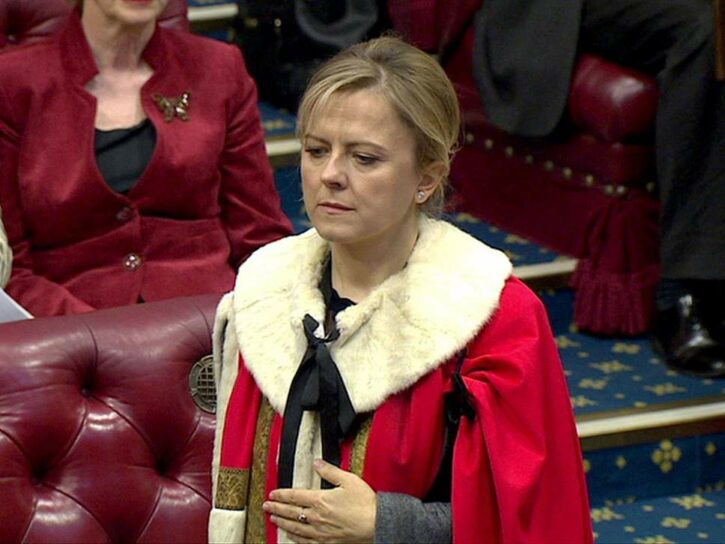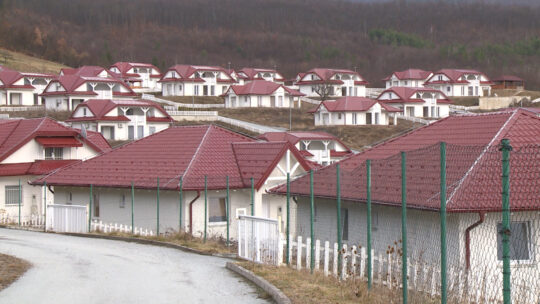
Serbia and Croatia are undermining Bosnia's sovereignty through their proxies. Croatia supports the creation of the third entity and Serbia through its support for Republika Srpska entity's secession, Baroness Arminka Helic said during the House of Lords Grand Committee session, on Thursday. She recalled the late Lord Paddy Ashdown's mandate as the High Representative in Bosnia, saying that he worked hard on building Bosnia's State institutions after the 1992-1995 war.
“As High Representative, Lord Ashdown successfully established a state-wide military and a unified police command and supervised the establishment of the Bosnian judicial system. He oversaw the establishment of a single-state intelligence structure under parliamentary oversight, a unified customs service and an expanded Council of Ministers,” Helic pointed out, adding that he was not afraid to look the local and regional politicians in the eye and challenge them.
Arminka Helic is a former adviser to former British Foreign Secretary William Hague and is a very influential person in the politics of Great Britain. She was born in Gracanica, and came to Britain as a refugee in 1992, after which she attended a number of prestigious schools, eventually graduating from Oxford. British Queen Elizabeth II named her a British baroness.
The institution of the Office of the High Representative was set up by the international community to oversee the civilian implementation of the Dayton Peace Agreement which ended the war on Bosnia.
Helic also warned that the EU is divided internally on policy towards the Western Balkans.
“The US appears to be largely disengaged, and while I welcome our Government’s hosting of the Western Balkans summit last year… at the international level as a whole we see only tactical moves without a clear plan or vision.”
According to her, Russia is seeking to gain influence in the region and peel it away from the western alliance. But negative outside influence in the region is not confined to Russia.
“Turkey is seeking to recreate the influence amongst Muslim populations that it lost centuries ago. Chinese and Gulf investments are emboldening corrupt forces and distorting local politics,” the Baroness said. “We see the emergence of radicalisation as well as right-wing militarism in Muslim foreign fighters from the region joining ISIS in Syria and Iraq and in Orthodox Christian radicals fighting for Russia in Ukraine.”
She also warned the House of Lords of the undermining influence of Serbia and Croatia in Bosnia who undermine its sovereignty through their proxies.
“Croatia (does this) by encouraging the (ethnic-oriented) Croat Democratic Union (HDZ BiH) to create a third, Croat, entity within the Federation of Bosnia and Herzegovina entity,” Helic said, adding that Croatia also uses its EU membership to champion that. Croatia’s moves are fully supported by Russia, presumably because of their potential to contribute to the dissolution of the country.
“Serbia does it by supporting secessionists in the smaller Bosnian (Serb-dominated) entity of Republika Srpska. Yesterday (Wednesday, January 9) the Republika Srpska celebrated its so-called statehood day: the date in 1992 when, by declaring their own state, Bosnian Serbs triggered the devastating four-year war that killed more than 100,000 people and left millions displaced.”
Even though Bosnia’s constitutional court declared the holiday as unconstitutional in a ruling in 2015, celebrations were held, presided over by the entity’s president Zeljka Cvijanovic, whose declared policy is for the entity to eventually break away from Bosnia and join Serbia, the Baroness warned.
“The celebrations were attended by the Prime Minister and Defence Minister of Serbia, while Serbia’s President sent a congratulatory letter. There is no doubt about the signal this sends: a country that aspires to EU membership, Serbia, is directly undermining the sovereignty and territorial integrity of a neighbouring country.”
During Lord Ashdown’s tenure in Bosnia, she said, any individual who challenged the Dayton Peace Agreement in the way this event did would have been sanctioned through the Bonn powers attached to the Office of the High Representative.
In the end, she expressed hope that Brussels, London and Washington would start acting as one through a comprehensive strategy for the entire region.




